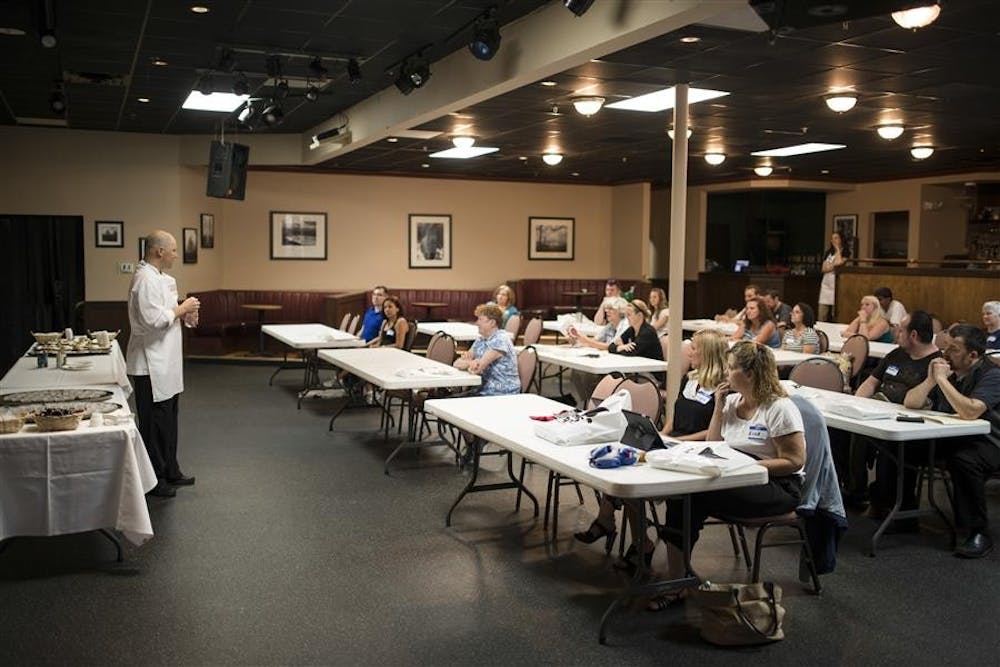Roughly 90 percent of Americans consume too much sodium and this could lead to high blood pressure, heart disease or stroke.
The Monroe County Health Department has received a $20,000 federal grant from the United States Centers for Disease Control and Prevention to focus on sodium reduction in the community.
The local health department along with their other grant partners, IU Health Bloomington, Ivy Tech and BIRA organized a free tasting workshop Wednesday at KRC Catering, which aimed to educate local chefs and residents about how they could sustain their health one bite at a time.
“Heart disease is the leading cause of death in Indiana, killing over 13,000 residents each year,” said Christina Stigger, sodium reduction coordinator for the initiative.
“Typically, heart disease is preventable if people incorporate healthy eating, exercise, and stress reduction habits into their daily routines.”
Monroe County Health Department invited local chefs as well as restaurant owners to join the interactive tasting workshop run by Chef Jeff Taber, hospitality program chair at Ivy Tech Community College and an IU Health Bloomington registered dietitian.
Chef Taber opened the workshop by explaining to the participants that this subject matter is relevant because he suffered a stroke in 2010 and was placed on a low-sodium — 1,000-milligram — diet, as required by his doctor.
The workshop helped teach practical ways to decrease sodium levels in recipes without losing the flavor and keeping one’s own health in mind.
“There isn’t a 100-percent replacement for salt, but there are things we can do to counteract it in foods,” Chef Taber said.
Things to substitute for good flavor and low sodium include sauce reductions, citrus juice, raw garlic at the end, herbs, homemade spice blends, curries, Jamaican jerk and Cajun seasonings. Use fresh beans, not canned. Use the freshest in-season vegetables and use principles in vegetarian cooking like Umami, which means “the other taste” or a meaty flavor without meat.
After Chef Tabers helpful tips, the participants sampled foods from vendors of US Foods, Metro Deli and John Morrell Food Service. Things such as low-sodium cold cut meats, hot dogs, sauces, fries and broths were provided.
Real life examples and the implications of living a high-sodium-filled life, played a big role in promoting the low-sodium workshop.
“I, too, am on a low-sodium diet due to stroke and other heart conditions,” said Mike Przytulski, COP Specialist for US Foods. “The more you can try to move salt, the better. I weigh 30-percent less today and because of that I can watch my kids grow up.”
According to the American Heart Association, one out of three American adults has high blood pressure.
“Research shows that everyone should lower their sodium intake, not just those with high blood pressure,” Stigger said.
Thirty-nine percent of adults within the Bloomington region have high blood pressure, which can lead to heart disease and stroke. High blood pressure also puts stress on the kidneys.
Stigger said she noticed some hesitation by local restaurants when she visited and spoke with the chefs and cooks prior to the event.
“It is easy to say ‘no’ because no means staying the same wand not changing. Whereas yes opens the door for the possibility to change,” she said. “I feel like once you explain things and provide examples to people, they become more at ease.”
Health department promotes low-sodium diet

Get stories like this in your inbox
Subscribe





